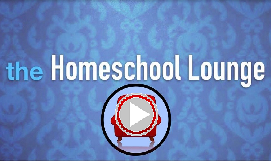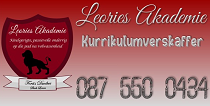Articles
Analysis of Gauteng School Education Law by Leendert van Oostrum
The conclusion of our analysis of the latest Gauteng law is: “Any sensible homeschooler (or parents who send their children to unregistered private schools) will make sure that they have competent legal advice and representation and, for the rest of it, simply ignore this silly piece of would-be intimidation.”
The argument for this is as follows:
As Bouwe has pointed out, and as can be seen from text of the amendment below, the only real change to the law in Gauteng is that it now purports to impose a minimum sentence of three months in jail if you do not send your children to school (the Gauteng law does not provide for home education as a legal option at all, but it also applies to parents who send their children to unregistered private schools).
And, if you are prosecuted and you are not represented by a competent lawyer who knows and understands this field of law, that is more than likely what you will get – a minimum sentence of three months in jail. This is the likely outcome if you try to represent yourself or if you choose some ambulance chasing lawyer to represent you.
However, if you get decent legal advice and representation, it is most unlikely that you will get that sentence, and an appeal against that unlikely sentence is almost certain to succeed if you can show by any of a variety of means, but most securely by the results of scholastic tests performed by an educational psychologist) that your children are in fact being educated.
That is in the most unlikely event that the case ever gets to court – in the sixteen years that the law has existed at national level, not a single case in which the family had competent legal representation got as far as the courtroom.
Firstly, one needs to see the bigger picture: This piece of law is VERY badly written. The reason is that it was almost certainly not drafted by competent persons with knowledge of both home education and of the law. Comparing the text of this law with other utterances by Gauteng education officials, I would say that the snippet about minimum three months in jail was inserted by some education official who wants to intimidate homeschoolers.
Because, as law, this will be most difficult to enforce. Its purpose is not so much to actually send homeschoolers to jail – the department simply does not have the manpower to initiate and conduct prosecutions except perhaps for a test case or two which are most unlikely to succeed if the victims are well represented.
The real purpose of the law is to frighten homeschoolers into voluntarily returning their children to schools – no sweat to the department.
To understand the reason for this, one has to look at the even wider picture – another part of this amendment act makes it unlawful for the governing bodies of state schools to pay bonusses to teachers who perform well, except if the governing body obtains beforehand special permission from the Education Department.
The effect of this will be to spread the collapse of education standards to the remaining “good” state schools (mostly the old “Model C” schools) over time. This will drive more people into private schools and home education – which the department needs to prevent. Hence a law to intimidate anyone who considers that option.
Looking carefully at the law, however, its madness and ineffectiveness come to light:
a) As Bouwe has pointed out, Gauteng is simply bringing itself up to date with the SA Schools Act. (The Gauteng Act was originally passed before the SA Schools Act and, ironically, the SA Schools Act was based on the Gauteng one!)
b) The national law has the effect that it is perfectly legal to homeschool one’s children without being registered with the education department, provided one has good reason not to do so. And the provincial law copies this element faithfully.
c) The fact is that provincial policy makers are so keen to intimidate and victimise homeschoolers that they invariably make policies that are in themselves illegal or unenforceable. It comes down to the fact that provincial officials use an otherwise legal (and reasonable) registration requirement to illegally assume powers that they would not otherwise have. This cannot, however, make unlawful powers lawful. This means that one can awfully ignore the registration requirement, and something like 98% of homeschoolers countrywide do so. They simply do not register their children for home education.
(The unlawful powers assumed by offials include that they attempt to compel private schools and homeschoolers to follow the national curriculum in every respect and not only the “minimum requirements”, to compel them to allow officials to infringe the children’s right to privacy by entering their private homes on so-called “home visits” and numerous other intrusions on the fundamental rights of the children and their families).
d) What we also have to understand is that there is a peculiarity about all education laws – education is one of three fields (the other are health and police) where the national and provincial legislatures have “concurrent” powers. This means that national law does not have greater authority than provincial law and vice versa. In practice it means that, if a national law says something on which a provincial law is silent, the national law is in force and vice versa. If, however, the national law and the provincial law address the same topic and are in conflict with one another, the constitutional court has decided that the only way in which the impasse can be resolved is that the national and provincial legislatures must consult about the conflict and resolve it by changing one or both the laws.
e) This means that the national law on home education applies in Gauteng, even though the Gauteng Act is silent on the issue of home education.
f) The Gauteng Act, probably through the intervention of some vindictive official, as I pointed out previously, does no only copy the national act verbatim in the updated Section 12. It actually repeats itself in the amended Secion 15, and it does so verbatim except for two aspects:
a. It changes the wording of the appropriate part of Sec 12 (which is a verbatim copy of the national SA Schools Act) to introduce a minimum jail sentence of three months. HOWEVER, this is NOT the minimum sentence. The simpleton who inserted the change did not delete the words “…a fine or…” this means that the court STILL has the discretion of awarding a (small or large) fine. The minimum sentence of three month only comes into effect if the court chooses to award a jail sentence instead of a fine.
b. The wretched fool who inserted the new Section fifteen (an almost verbatim copy of Section 12) left out the very strategic word “…fails…”, thereby changing the meaning of the entire paragraph to mean the opposite of what it seems intended to mean. In fact, it means that if you are caught sending your child to school regularly, you can be prosecuted and upon conviction be sentence to a fine or a minimum of three months in jail!
Any lawyer worth his or her salt will have a ball with this silly law if the department ever gets it into its head to try and institute a prosecution. If the department realises this, it should prosecute in terms of the national law, and not the provincial one. And that they have tried before, with no result.
Any sensible homeschooler (or parents who send their children to unregistered private schools) will make sure that they have competent legal advice and representation and, for the rest of it, simply ignore this silly piece of would-be intimidation.
Of course, competent legal representation costs an arm and a leg (the best part of the cost of a suburban home if the case goes on appeal), which is why it makes sense to join a mutual support group such as the Pestalozzi Trust’s legal defence fund – or start another one if you don’t like what is available.
The text of the relevant part of the amendment law follows below.
Kind regards,
Leendert van Oostrum
Pestalozzi Trust legal defence fund for home and civil education
------------------------------------------------------------
Text of the amendment:
Amendment of section 11 of Act 6 of 1995
8. Section 12 of the Gauteng School Education Act, 1995 is hereby amended by the:
(a) substitution for subparagraph (ii) of subsection (1)(b) of the following subparagraph:
"(ii) the day on which he or she reaches the age of fifteen years or completes the ninth level, whichever occurs first [is the earlier].";
(b) substitution for subsections (2) to (4) of the following subsections;
"(2) The Member of the Executive Council must ensure that there are enough school places so that every child who lives in the province can attend school as required by subsection (1).
(3) If a Member of the Executive Council cannot comply with subsection (2) because of lack of capacity existing at the date of the commencement of this Act, he or she must take steps to remedy any such lack of capacity as soon as possible and must make an annual report to the Minister on the progress achieved in doing so.
(4) If a learner who is subject to compulsory attendance in terms of subsection (1) is not enrolled, at or fails to attend a school, the Head of Department may—
(a) investigate the circumstances of the learner's absence from school;
(b) take appropriate measures to remedy the situation; and (e) failing such remedy, issue a written notice to the parent of the learner requiring compliance with subsection (1)."; and
(c) the addition of the following subsections:
(5) if a parent of any person who is subject to compulsory school attendance in terms of section 12(1) fails, without reasonable cause and after a written warning by the Head of Department, to cause such a person to attend an appropriate school regularly, he or she shall be guilty of an offence and liable on conviction to a fine or imprisonment for a period not exceeding six mouths.
(6) The Head of Department may exempt a learner entirely, partially or conditionally, from compulsory school attendance if it is in the best interests of the learner,
(7) The Head of Department must maintain a register of all learners exempted from compulsory school attendance.".
Repeal of section 13 and 14 of Act 6 of 1995
9. Sections 13 and 14 of the Gauteng School Education Act, 1995 are hereby repealed.
Amendment of section 15 of Act 6 of 1995
10. Section 15 of the Gauteng School Education Act, 1995, is hereby amended by—
(a) the substitution of subsection (1) of the following subsection:
"(1) If a parent of any [person] learner who is subject to compulsory school attendance in terms of section 12(1), without reasonable cause and after a written warning by the Head of Department, to cause such [person] learner to attend an appropriate school regularly, be or she shall be guilty of an offence and liable on conviction to a fine or to imprisonment for a minimum period of (not exceeding] three months."; and
(b) the substitution of subsection (3) of the following subsection;
"(3) Any person who hinders or obstructs [school attendance officer] any official of the department in the performance of his or her functions [under section 13] in terms of this Act or any other applicable law shall be guilty of an offence and liable on conviction to a fine or to imprisonment for a period not exceeding six months."
































